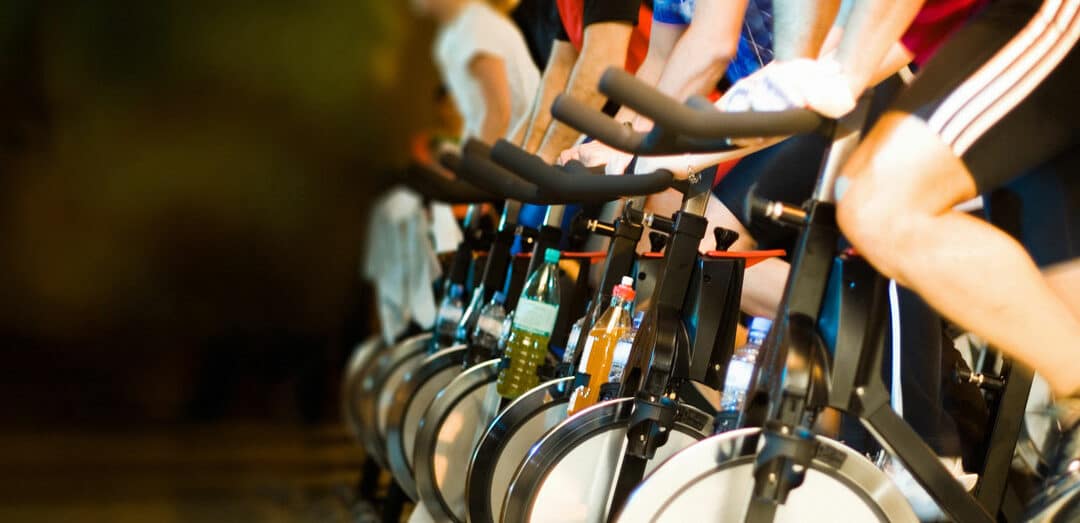Wellness and recovery go hand in hand. When a person hits rock bottom and decides to embrace recovery, physical detox is the first step. From there, the journey toward a sustainable sober lifestyle will begin. To recover, one must be willing to:
- Face past traumas
- Learn new coping strategies
- Open themselves up and be vulnerable
- Leave their comfort zone in search of something better
At its core, the recovery process is about self-love. That’s why wellness is such an important aspect of healing. When someone is physically unwell, they’ll also suffer on a mental level. Holistic recovery embraces all aspects of healing, from mental realignment to physical conditioning.
The Physical Benefits of Exercise and Addiction Recovery
Jump to Section
There are studies that show exercise can help with recovery. One study examined a group of men and women who were struggling with substance use. Of the 20 who stuck to a fitness plan, five reported they were still maintaining their sobriety a year later. An additional 10 reported they had decreased their usage.
Another study on exercise and addiction recovery found swimming made dependent rats less likely to indulge in opiates. Yet another showed having the option to exercise reduced a rat’s cravings for cocaine.
Physical Exercise Can Help Improve Sleep
There are many reasons someone in recovery might struggle to sleep. Altered brain chemistry from detoxing may throw off sleep patterns. After entering treatment, the resident may feel uncomfortable in the new environment. Nightmares about past traumas may occur.
The doctor will decide whether the resident needs medications to assist with sleep. Either way, getting a proper amount of physical activity during the day will improve sleep quality. There have been numerous studies on the relationship between exercise and sleep. Most have concluded that exercise improves both the quality and duration of sleep.
When residents sleep well, they wake up ready to tackle a new day. This is always valuable, but it’s particularly crucial in the early stages of recovery.
Exercise Can Increase Energy
 Regular exercise boosts energy. This is on top of the energy one receives from getting better sleep. Studies have shown the average energy boost provided by exercise is greater than that from stimulant medication. Fit people experience fatigue at a lesser rate than the sedentary.
Regular exercise boosts energy. This is on top of the energy one receives from getting better sleep. Studies have shown the average energy boost provided by exercise is greater than that from stimulant medication. Fit people experience fatigue at a lesser rate than the sedentary.
Recovery is a draining process. Residents need energy to work through their emotions and face the root causes of their problems. An increase in energy means more stamina on the hard days. It also means the good days will feel even better.
Physical Fitness Can Help Heal the Damage
A person who abused substances for a longer period likely has some physical consequences. For instance, meth or heroin abuse can sometimes cause skin picking, which leaves lesions behind. Someone struggling with alcoholism may have gained weight and lost vital physical conditioning. In serious cases, there can be long-term damage to the body or internal organs.
Exercise can’t undo all the damage caused by substance abuse, but it can help. Committing to a realistic and healthy fitness routine is an important step. It’s a way an addict can show themselves and the world they’re ready to embrace health. Over time, physical conditioning and circulation will improve. This supports the recovery of the skin and other organs.
How Fitness Supports a Recovering Mind
Many people who struggle with addiction are also battling mental illness. A person may begin self-medicating with substances to control the symptoms of mental distress. It’s also possible for mental illness to result from substance abuse. Long periods without proper hygiene or sleep can result in unhealthy brain chemistry.
Likewise, addiction can lead to situations that cause further trauma. This increases the likelihood of developing PTSD. Addiction and mental illness both involve a struggle with depression or anxiety; exercise can help with this.
Using Exercise as an Antidepressant
A growing body of research suggests working out may be an efficient adjunct treatment for depression and anxiety. Even if the patient isn’t clinically depressed, physical activity can ease the mind during stressful times.
Exercise helps to improve mood by releasing endorphins. These are chemicals the brain uses to regulate feelings of pain or pleasure. They’re released as a “reward” from the brain when a person does something satisfying, such as eating or doing yoga. They help minimize pain and keep us going when injured or upset.
Unfortunately, substance abuse can throw off the brain’s endorphin function. This can cause a depressed state. Regular exercise, alongside a comprehensive recovery plan, can correct this over time.
Exercise as a Tool of Focus and Structure
 Creating a new structure for life is a big part of recovery. Most addicts have spent years centering their daily lives around substance abuse. When substances are no longer part of the picture, they may feel lost.
Creating a new structure for life is a big part of recovery. Most addicts have spent years centering their daily lives around substance abuse. When substances are no longer part of the picture, they may feel lost.
Residential treatment is highly structured. This lays the groundwork for building a new daily lifestyle. Creating a workout habit during the early stages of recovery will make it easier to stick to over time.
Along with helping to create structure, exercise also provides something to focus on. Improving physical conditioning is quite rewarding. It’s a fun and fulfilling hobby, and focusing on it can help a person avoid temptations.
Exercise to Improve Self-esteem
Rebuilding confidence after addiction is a long, slow process. Working on fitness can help a recovering addict develop self-esteem. Setting fitness goals and achieving them is rewarding. If one can attain fitness after all the struggles of addiction, what else could they achieve?
Staying Fit and Sober with the Help of a Supportive Community
Embracing exercise will connect a recovering addict with a global community of fitness enthusiasts. Not every fitness devotee is sober, but many dedicate themselves to preserving health. In general, someone is more likely to find sober friends at the gym or yoga studio than in most other places.
Connection
There are organizations that help sober people connect through their preferred physical activities. Many social media platforms have groups for sober hiking or jogging meetups. After completing the first phases of treatment, the resident may want to talk to their team about finding resources in the local community.
Accountability
The great thing about teaming up with others is the ability to hold each other accountable. If someone has a sober friend they jog with every morning, it will be harder to skip a workout. Health-minded friends can provide an excellent support system during the recovery process and beyond.
Best Options for Exercise and Addiction Recovery
 The best method of exercise is the type which an individual will enjoy and stick to. Walking is less challenging than cycling, but if a person is more likely to take a walk than go for a ride, it’s still a good choice. Whatever gets someone up and moving is ideal. Nonetheless, there are certain types of exercise that are ideal for someone in recovery.
The best method of exercise is the type which an individual will enjoy and stick to. Walking is less challenging than cycling, but if a person is more likely to take a walk than go for a ride, it’s still a good choice. Whatever gets someone up and moving is ideal. Nonetheless, there are certain types of exercise that are ideal for someone in recovery.
Yoga
The great thing about yoga is it offers the benefits of mindfulness and exercise in one relaxing package. It requires little to no special equipment. There are so many styles and levels of yoga that it’s possible for just about anyone to practice. This includes those new to the world of fitness and even those with certain disabilities. The yoga community is welcoming to people from all walks of life, making it a great option for someone in recovery.
Cardio
Any cardio activity will be quick to deliver those wonderful mood-boosting benefits. Cardio supports the heart, the lungs, the mind, the skin, and every other part of the body. It’s great for helping people in recovery feel excited about life again.
Hiking
Research shows time in nature is healing. A study of 20,000 people found spending two or more hours a week in natural settings leads to improved physical and psychological health. Hiking also offers all the other expected benefits of exercise.
Adjunct Modes of Wellness
It’s best to tackle recovery with a holistic approach. Wellness practices are like an arsenal of weapons one can use in the fight against addiction.
Exercise is one of the most powerful tools. However, other factors, such as nutrition or mindfulness, also play an important role. These healthy practices become self-supporting. The more one engages with them, the easier they are to stick to. They can also support each other.
For example, someone who meditates will find it easier to maintain a positive attitude. This will make them more motivated to exercise each day, which will help them feel even more optimistic. A healthy diet supports all other efforts by ensuring the brain and body have everything they need to function.
Wellness and Recovery: Free by the Sea Offers the Help You Need
Free by the Sea is a drug and alcohol recovery center in beautiful Ocean Park, Washington. This quaint small town and its peaceful shorelines offer the perfect healing environment.
At our beautiful campus, our clients work through the needed stages of recovery. We offer a variety of treatment options within our residential, intensive outpatient, or partial hospitalization programs. These include fitness and nutritional regimens designed to help residents maintain wellness throughout the recovery process.
You’ve suffered in the grips of this addiction long enough. It’s time to begin a new chapter of wellness and recovery. With the help of our compassionate team, you can conquer this challenge. We want to see you thrive! Please contact us today to begin your journey.

Dr. Richard Crabbe joined our team in 2019 as our psychiatrist and medical director. He attended the University of Ghana Medical School where he became a Medical Doctor in 1977. From 1978 through 1984, he was a medical officer in the Ghana Navy and provided a variety of services from general medicine to surgeries. He received his Certificate in General Psychology from the American Board of Psychology and Neurology in 2002.

 May 10th, 2021
May 10th, 2021










